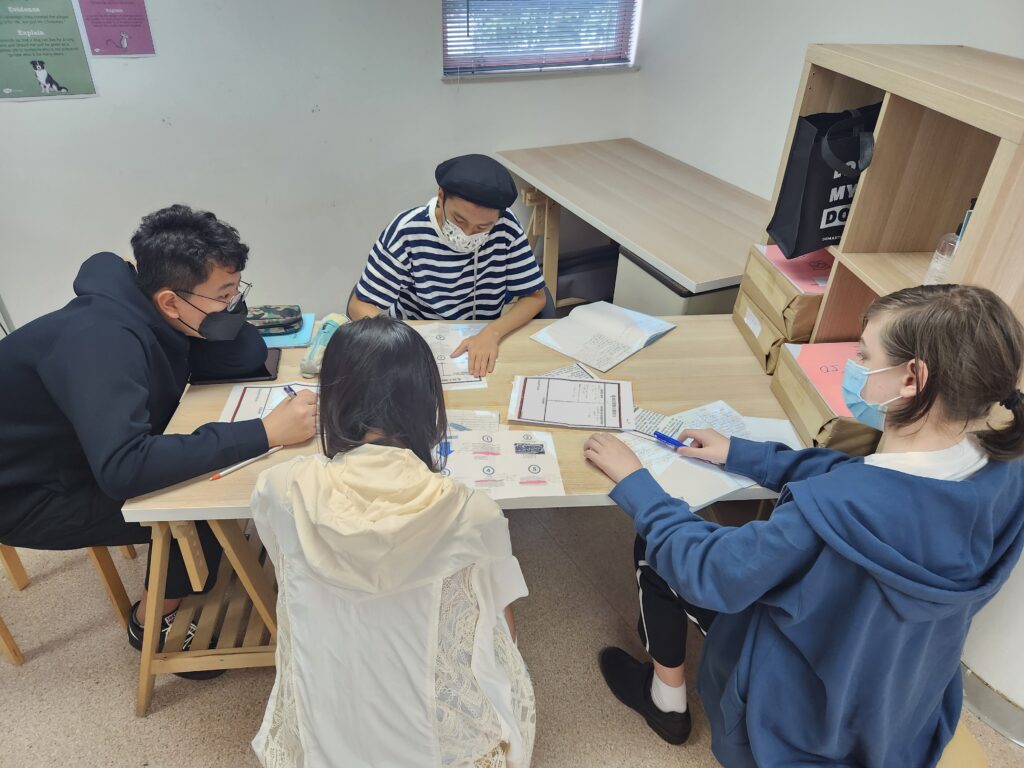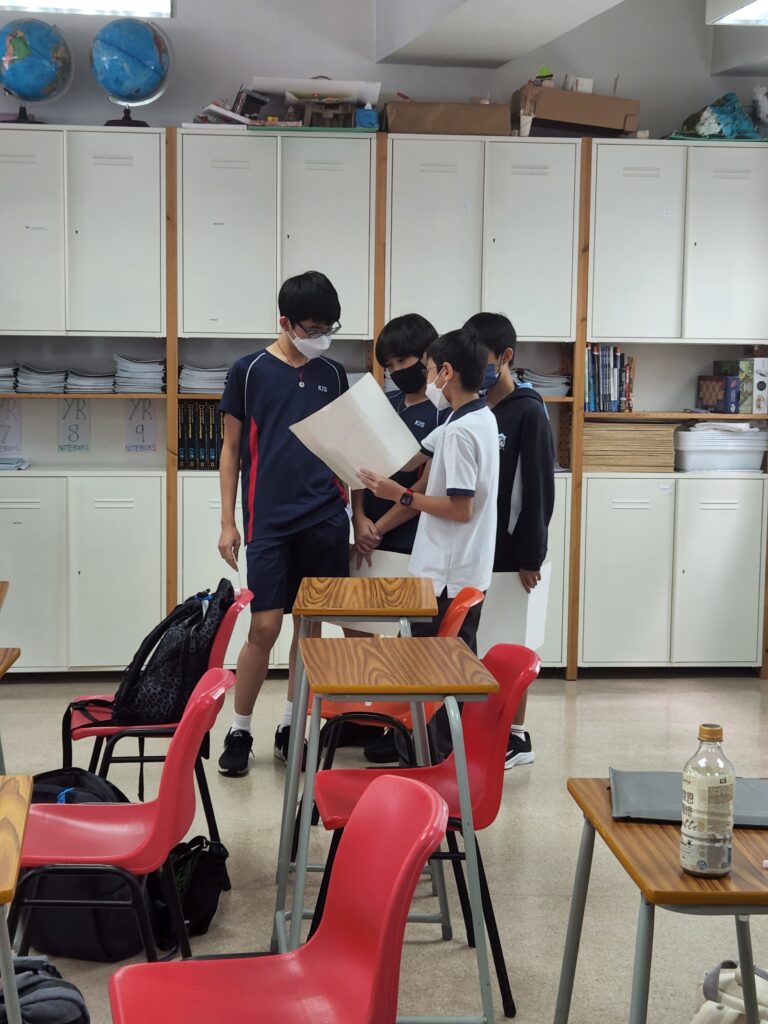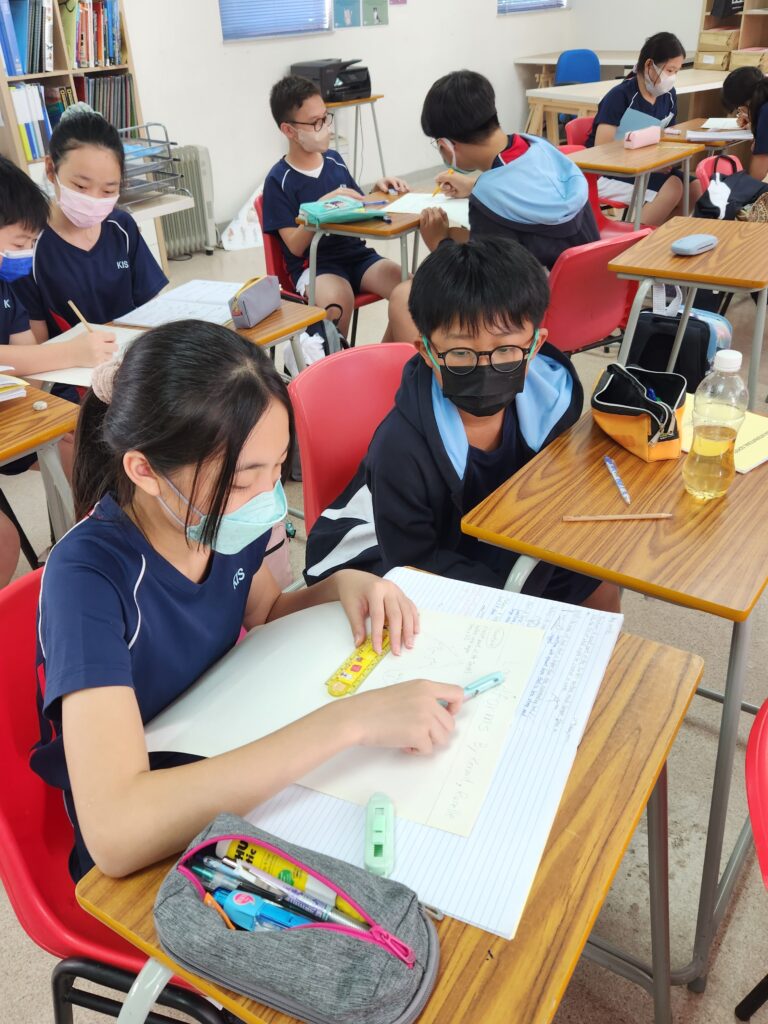HUMANITIES
The KIS Humanities department aims to develop students’ awareness of the world around them and provide students with the necessary skills to explore and engage with a variety of topics and issues that have an impact on our world today. Active learning tasks develop students’ critical thinking, writing and evaluation skills. The study of Social Studies and other related subjects helps learners become responsible global citizens.



Key Stage 3
- Social Studies (Geography, History and Current Issues).
- In-house Social Studies programme
Key Stage 4 (IGCSE)
- 0460 Cambridge Geography
- 0470 Cambridge History
- 0471 Travel & Tourism
Key Stage 5 (AS and A levels)
- 9696 Cambridge Geography
- 9489 Cambridge History
- 9395 Travel & Tourism
- 9274 Classical Studies
The Social Studies curriculum for Year 7, Year 8 and Year 9 is school-based – which means it is designed by the Humanities Department at KIS to cater for our specific group of learners – and skills-centered. Regarding the content, the KS3 syllabi are a combination of Economics, Geography and History and the whole curriculum aims to equip the students with the hard and soft skills needed to be successful in the IGCSE courses and beyond.
The students are expected to develop study skills (reading, highlighting, annotating, summarizing, paraphrasing) to support knowledge acquisition, writing skills to present ideas clearly and logically, and soft skills like collaboration, critical thinking, leadership, accountability, time management to work meaningfully with each other and towards a final goal.
Year 7
- Geography: Skills (Cartographic; Graphical; Numerical; Statistical); Physical Geography – Processes and Changes; Biomes
- History: Historical Skills (Chronology, Terms and Concepts); Ancient China; Ancient India
Year 8
- Geography: Skills (Cartographic; Graphical; Numerical; Statistical); Climate Change
- History: Historical Skills (Historical Questions and Research); Ancient Rome; Middle Age in Europe
Year 9
- Economics: Basics of Economics (Producers and Consumers)
- Geography: Skills (Cartographic; Graphical; Numerical; Statistical); Natural Hazards: Geomorphic; Weather and Climate
- History: Skills (Analysis and Use of Sources, Perspectives and Interpretation); World War 1
Business Studies
By studying Business Studies at KIS you will study business activity from the perspective of different stakeholders including managers, shareholders, employees and customers. You also explore the economic, environmental, ethical, legal, social and technological influences on business activity.
Some of the key topics you will cover include:
- business activity
- human resource management
- marketing
- production
- accounts
This will be achieved through various teaching methods, including business simulations, investigative case studies, debate and even building your own business! There will be further opportunities both inside and outside class to develop key business-related skills through a range of internal and external competitions.
Economics
Economics is the study of scarcity and how it affects the use of resources, the production of goods and services, the growth of production and well-being over time, and many other important and complicated issues that affect society. In general, economics can be broken into two parts: macroeconomics, which looks at how the economy works, and microeconomics, which looks at how people and businesses work.
By studying Economics at KIS, you will learn to further understand the world around you. It will provide you with the opportunity to understand more about people, businesses, markets and governments, preparing you to deal with opportunities and challenges that emerge when aspects of society change.
Geography
Geography is the study of the intricate spatial relationships between people and their environments. This subject integrates physical, human, and environmental geography, From the physical processes of the earth to the human population and environmental management, this subject seeks to provide students with a holistic understanding of our planet and its inhabitants.
In KIS, this subject stimulates students’ curiosity through geographical enquiry, fostering critical thinking, spatial awareness, and analytical skills. Our curriculum encourages students to engage with real-world case studies, enabling them to comprehend the issues that impact our planet and our lives. In addition, fieldwork plays a pivotal role in this subject, providing students with valuable opportunities to witness geographical theories and concepts in action.
The Cambridge IGCSE Geography syllabus revolves around three captivating themes: Population and Settlement, The Natural Environment, and Economic Development. Through a series of thought-provoking examination papers, students will engage with these themes, focusing on geographical concepts, skills, and enquiry.
History
History is the study of human interactions through time. Although memorisation of dates, names and places is expected, History’s focus is on understanding, analysing, and evaluating social, economic and political events and their impacts through the interpretation of historical sources. By studying Cambridge IGCSE History, students will also learn valuable analytical skills that will allow them to think of issues in terms of cause-consequence, change-continuity, similarities-differences.
The Cambridge IGCSE History syllabus covers six Core Units (spanning from the signing of the Treaty of Versailles to the collapse of the USSR) and one Depth Study. Students will also be expected to complete a 2000-word piece of research.
Travel & Tourism
Travel and Tourism is a fast-growing industry that continues to attract more people and offer many professional opportunities. The Cambridge IGCSE Travel and Tourism provides an initial understanding of the nature of the industry at the global, national, and local levels. This academic subject aims to provide useful information that could help prepare skilled and knowledgeable individuals who might join this rapidly diversifying industry in the future.
The syllabus presents and analyses concepts, models, and theories used within the industry. It also discusses the importance of sustainability, destinations, and marketing in travel and tourism. The students are also challenged to enhance their analytical, interpretative, and evaluative skills.
Classical Studies
The AS and A Level Classical Studies program offers a comprehensive exploration of ancient Greece and Rome. Over this two-year course, students will develop essential analytical skills while delving into the captivating histories, cultures, and lasting legacies of the Classical world.
In Year 12 (AS), learners first examine the conquests and complex legacy of Alexander the Great, considering how his achievements have been interpreted and reconstructed by historians. The second AS topic focuses on the architecture of the Roman Empire. In studying Roman architecture, students examine how the built environment reflected and influenced the broader historical, political, religious, cultural and social contexts of Roman civilization.
Year 13 (A Level) allows for deeper investigation. Students will critically analyze the political, social, and cultural differences between Athens and Sparta and the themes, characters, and historical contexts present in Homer’s epic poems The Iliad and The Odyssey. Throughout these in-depth studies, learners hone their ability to interpret evidence, assess historical significance, and understand the importance of context.
Underpinning the entire Classical Studies syllabus are essential skills that cultivate critical thinking and global awareness. Students explore how the Classical world has been reconstructed, consider similarities and differences between ancient and modern societies, and examine potential biases in source materials.
This academically rigorous program equips learners with a robust historical foundation and diverse transferable skills. Whether examining Alexander’s military genius, Roman architecture, or the narratives of Homer, students emerge with a deep understanding and lasting appreciation for the enduring significance of the Classical world.
Geography
The AS/ A Level Geography syllabus builds upon knowledge and skills gained at Cambridge IGCSE. Learners widen their knowledge and understanding of the subject by diving deep into the intricacies of the world, all while refining their investigative, analytical and critical thinking skills, honing their ability to evaluate information and make informed decisions.
This curriculum offers a wide-ranging and comprehensive study of the subject, giving students many options to explore. Throughout this academic journey, students will engage with various core topics, spanning both physical and human geography.
In Year 12, students will explore the core topics of this syllabus, including hydrology and fluvial geomorphology, atmosphere and weather, rocks and weathering, population change, and settlement dynamics. Through in-depth analysis and critical examination, students will uncover the fascinating processes that shape our natural and human environments, fostering a deeper understanding of our planet’s dynamics.
As students progress to Year 13, they will explore advanced geographical topics and concepts. Topics such as coastal and hazardous environments, environmental management, and global interdependence. This will allow students to delve into the complex relationships between humans, nations and our natural world.
History
AS/A-Level History for Y12 and Y13 is a very challenging and sophisticated course that allows students to dig deeper into historical concepts like cause-consequence, change-continuity, and similarities-differences to reflect on the interpretations of historical events and to analyse historical sources. In Y12, to prepare for their AS exam, students will study the development of the relationships among the European Great Powers in the second half of the 19th century until the end of WW1 and the failures and successes of the League of Nations in the 20s and 30s of the 20th century.
To develop their interpretation skills, Y13 students will decide with their teacher which one of these three topics – The Origin of WW1, The Holocaust, Origin and Development of the Cold War – to approach. Finally, International History – 1945-92 (Cold War, Communism in Asia, Decolonisation in Africa and Middle East Conflicts) is the last set of events the students will have to master and reflect upon.
Travel & Tourism
Cambridge International AS and A Level Travel and Tourism is an ideal course for those seeking to specialise in this subject. The course encourages learners to appreciate the changing nature of travel and tourism and understand the different aspects that compose the industry: from developing a sustainable approach to tourism to marketing different destinations, from organizing T&T events to caring for customers.
The syllabus enables learners to understand and discuss the concepts and theories in travel and tourism and to hone impactful soft skills like communication, problem-solving and planning.
